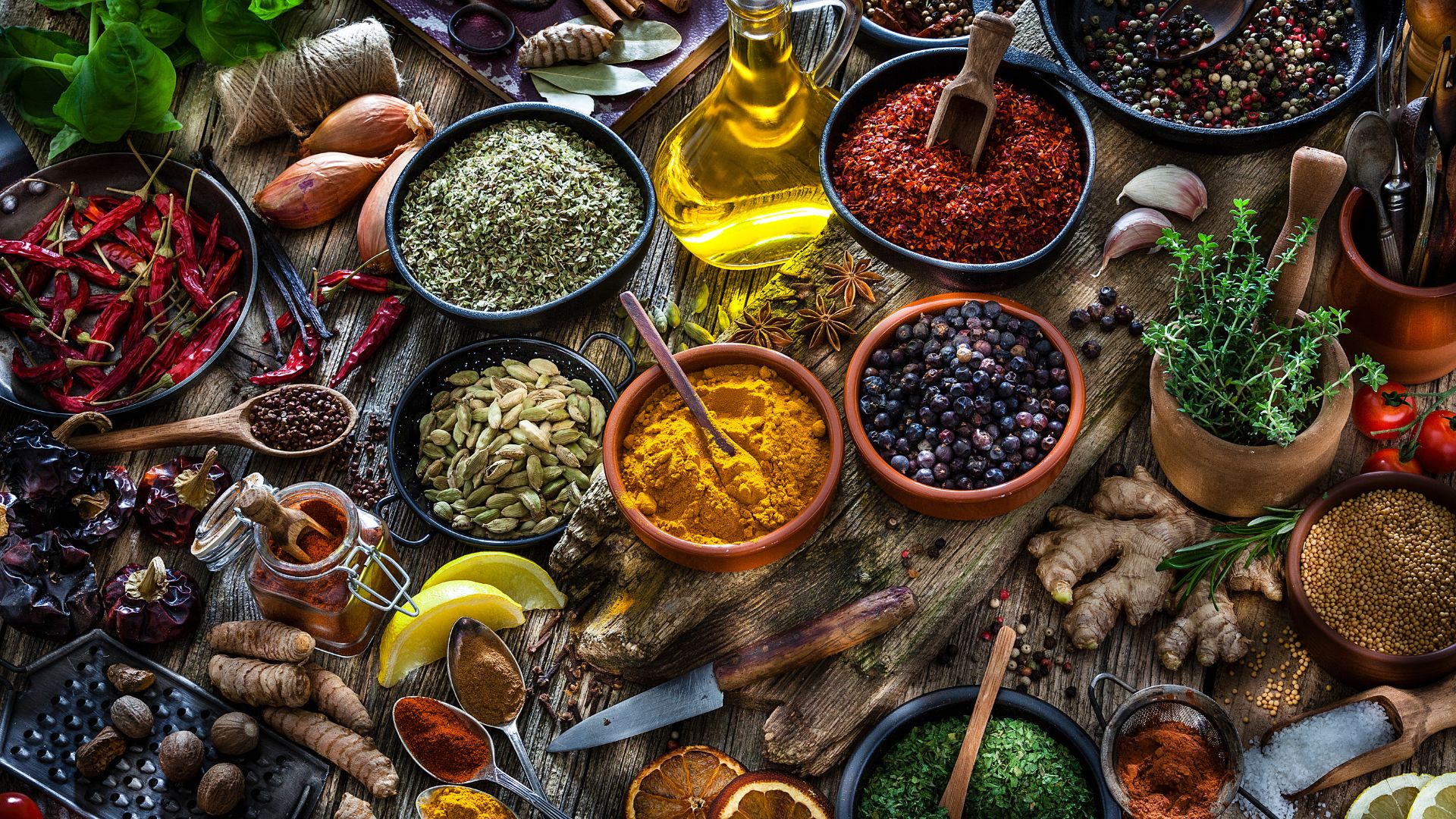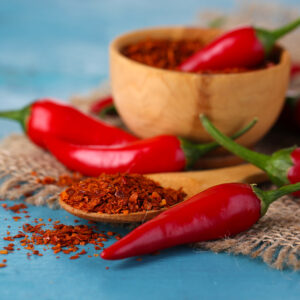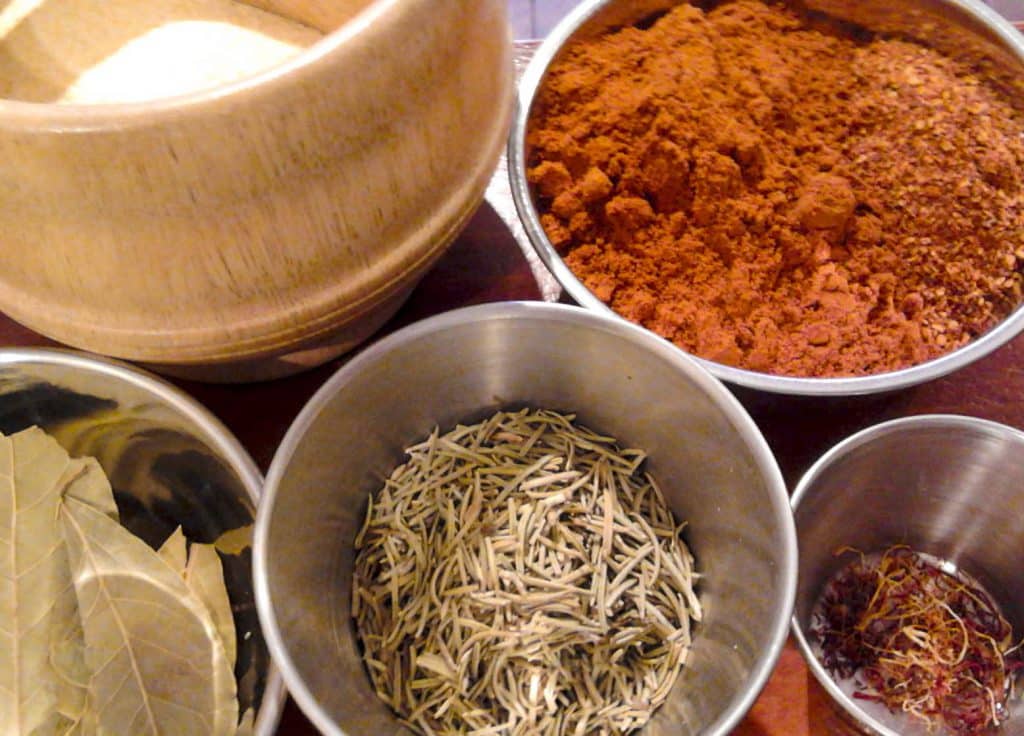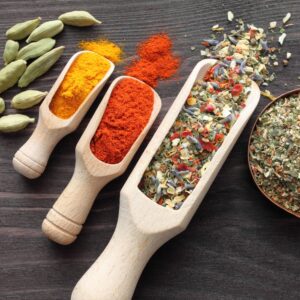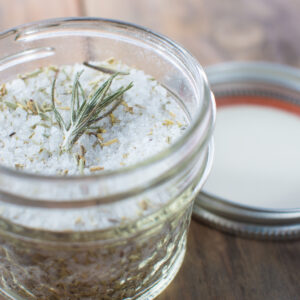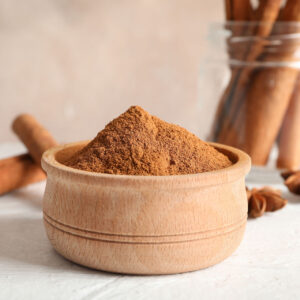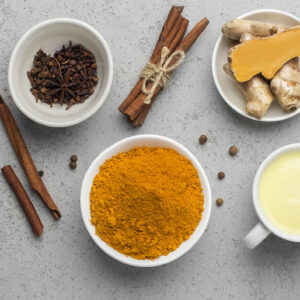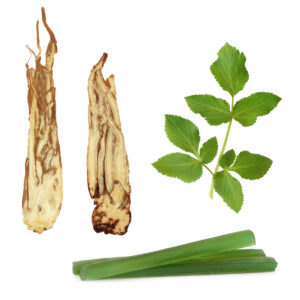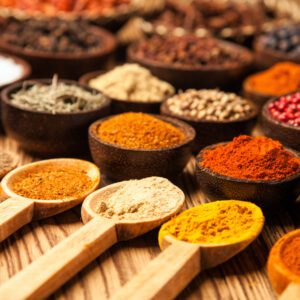Spices have long been revered for their ability to tantalize our taste buds and transform ordinary dishes into culinary delights. But did you know that spices can enhance mental and emotional well-being? In this article, we will explore the fascinating connection between spices and our mental and emotional health, uncovering the ways in which these flavorful wonders have a profound impact on our overall well-being.
Aromatherapy through Spices
Aromas have a powerful influence on our emotions and moods, and spices are no exception. Many spices, such as cinnamon, lavender, and cardamom, possess aromatic compounds that can stimulate the senses and evoke positive feelings. Delving into the world of aromatherapy with spices can help reduce stress, promote relaxation, and uplift our spirits.
Spices as Mood Boosters
Certain spices have been found to have mood-enhancing properties. For instance, saffron, often referred to as the “sunshine spice,” alleviates symptoms of depression and anxiety. Turmeric, with its active compound curcumin, has also shown promising effects in enhancing mood and combating feelings of sadness. Incorporating these spices into our diet can be a natural and flavorful way to support our emotional well-being.
The Gut-Brain Connection
Recent research has revealed the intricate connection between our gut and our mental health. The gut microbiome, comprised of trillions of bacteria, plays a crucial role in regulating our emotions and brain function. Spices like ginger, garlic, and cumin have antimicrobial and anti-inflammatory properties that can support a healthy gut microbiome. By nurturing our gut health with these spices, we may positively impact our mental and emotional state.
Culinary Creativity and Engagement
The act of cooking with spices can be a therapeutic and engaging experience. The process of selecting, grinding, and blending spices not only adds depth of flavor to our meals but also provides an avenue for creativity and self-expression. Preparing and savoring meals seasoned with a variety of spices can be a mindful practice, allowing us to be fully present and find joy in the culinary arts.
The Ritual of Spices
Incorporating spices into our daily routines can create a sense of ritual and mindfulness. Brewing a cup of spiced tea, sprinkling cinnamon on our morning oatmeal, or adding a pinch of cayenne to a homemade hot chocolate can infuse our daily habits with intention and pleasure. These rituals can serve as moments of pause, allowing us to savor the present moment and cultivate gratitude.
Spices as Stress Relievers
Certain spices, such as chamomile, holy basil, and nutmeg, have been used for centuries in traditional medicine as natural stress relievers. These spices have calming properties that can help reduce anxiety, promote relaxation, and improve sleep quality. Incorporating them into our meals or enjoying them as herbal teas can provide a soothing and comforting effect on our mental well-being.
Spice-infused Self-Care
We can incorporate spices into our self-care routines to enhance our overall well-being. For example, creating DIY spice-based body scrubs, facial masks, or aromatic baths can provide not only physical benefits but also a sensory experience that promotes relaxation and self-nurturing. The aromatic and therapeutic properties of spices can elevate our self-care routines, encouraging us to prioritize our mental and emotional health.
Spice-based Mindfulness Practices
Mindfulness practices involve bringing our attention to the present moment. We can add spices into our mindfulness exercises, such as spice meditation or spice-infused breathwork. In addition, engaging our senses with the aromas, flavors, and textures of spices can deepen our awareness and connection with the present, cultivating a sense of calm and grounding.
Exploring Lesser-known Spices
While popular spices like cinnamon and ginger have well-documented benefits, there is a whole world of lesser-known spices waiting to be discovered. Delving into the unique properties and benefits of spices like sumac, fenugreek, or star anise can open up new avenues for enhancing our mental and emotional well-being. Experimenting with these lesser-known spices in our cooking and daily routines can add a sense of adventure and exploration to our lives.
Spices possess a multitude of qualities that can enhance our mental and emotional well-being. From their aromatic properties to their stress-relieving effects, cultural significance, and potential for spice-infused self-care and mindfulness practices, spices offer a vast array of opportunities for us to nurture our inner selves. By embracing the spice of life and incorporating these flavorful wonders into our daily routines, we can savor not only the tastes but also the profound benefits they bring to our overall well-being.

